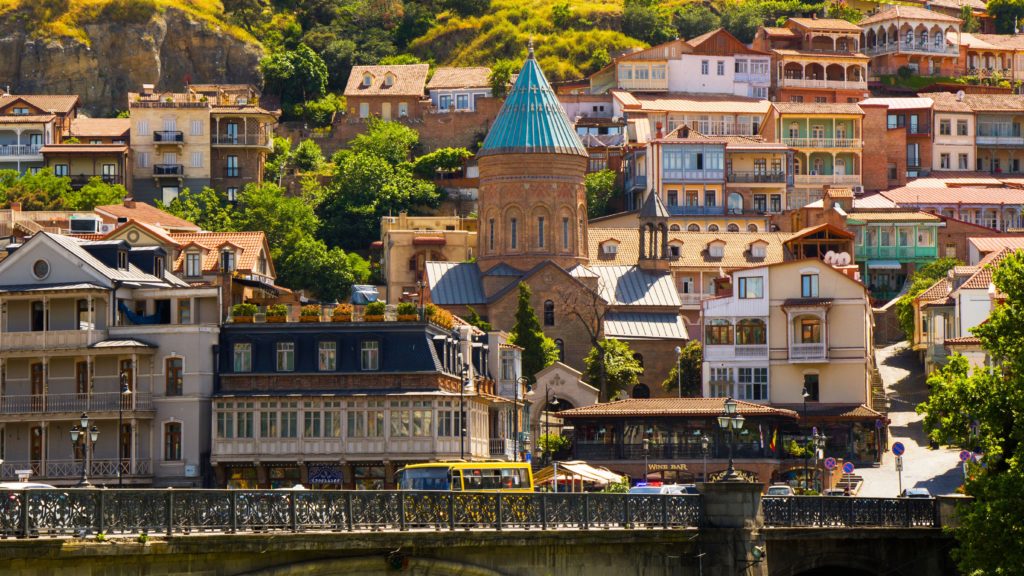TBILISI
Once a Western poster child for economic and political reforms and an example of how an almost anarchic country could turn a corner, Georgia is again faced with major political uncertainty.
Last week mobs attacked numerous local journalists who had gathered in various locations to cover a planned “pride” rally by LGBTQ groups. The LGBTQ rally was later called off. But over 50 journalists ended up hospitalized in what appeared to have been a coordinated set of attacks.
Police did little or nothing to try and prevent the violence. Later a mob protesting against homosexuality scaled the parliament building in the capital, snatched an EU flag, and burned it. Police also did not intervene. While Georgia is not an EU member, a solid majority of Georgians support joining the bloc.
The anti-sexual minority group is not thought to represent a major section of public opinion. The country’s highly influential Georgian Orthodox Church is staunch in its opposition to sexual minorities.
On Sunday, a cameraman for the private outlet “TV Pirveli” Aleksandre Lashkarava, who had been badly beaten and hospitalised, died at home. The cause was not immediately clear, but his death set off all manner of rumours and innuendo.
A melee broke out in parliament on Monday, resulting in fistfights and screaming tantrums.
This followed another set of protests in the city centre demanding Prime Minister Irakly Garibashvili quit. He refuses to do so.
Several dozen journalistic outlets called on international organisations and governments to respond. “Cases of violation of the rights of media representatives in Georgia have reached a critical level,” said a statement released by the organisations.
The latest events could not have come at a worse time. The COVID-19 crisis disproportionately decimated the country’s economy due to its heavy reliance on tourism. But the pandemic halted the flow of visitors and devastated local businesses. There are still far fewer tourists, and the country has very low rates of COVID vaccinations.
A political crisis in which opposition MPs have boycotted parliament after disputed elections late last year added more turmoil. The EU stepped in to mediate, but the result produced only a shaky deal that allowed the body to assemble a razor-thin quorum, and the political crisis remains deep.

